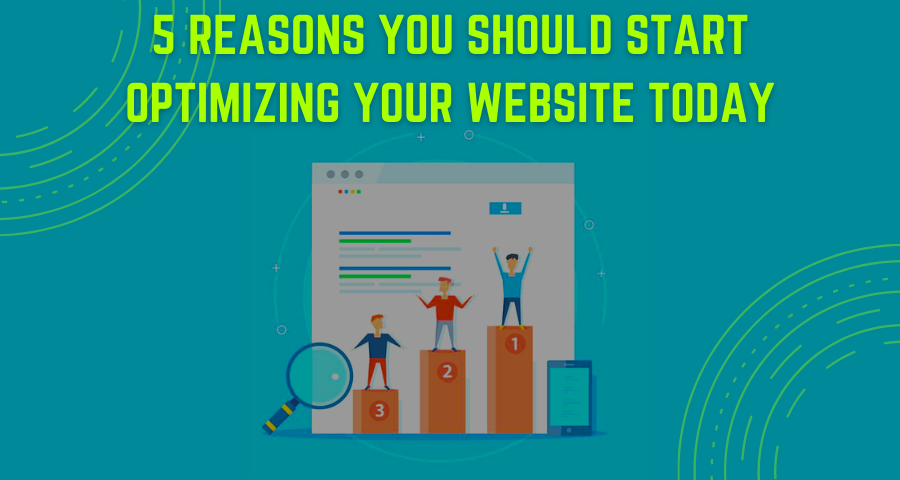5 Reasons You Should Start Optimizing Your Website Today
If you have a website, I’m sure you know that your website is nothing if it receives no traffic. Creating a website that’s well-designed is one thing and driving traffic and generating leads and sales is a whole different game.
You need to optimize your website for search engines and visitors.
Website optimization is the process of improving your site’s performance to drive traffic and improve search engine ranking. But a decent chunk of websites isn’t optimized for several reasons. If you own a website and you aren’t serious about optimizing your website, you should.
And here are 5 reasons why you should do it starting today…
1. User Experience
Website optimization improves UX and this is the most important reason why you should optimize your website.
User Experience (UX) is defined as the experience of the website visitor and how easy it is for the user to interact with your website. It is a term that’s used in design where the purpose is to create designs that are user-friendly and easy-to-use. Essentially, UX covers three things: Look, feel, and usability:
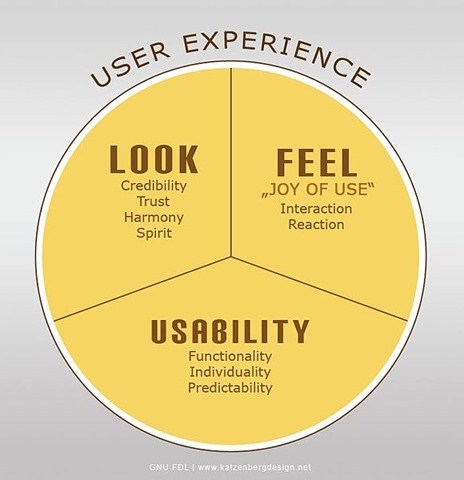
The idea is to meet the exact needs of your users and this is best achieved by optimizing your website. a Forrester study shows that $1 invested in UX results in a return of $100. Investing in UX will never disappoint you.
So how does optimization improve UX?
Whatever you do to optimize your website improves UX because the purpose of optimization is to make your website easy-to-use whether it is the alt text, website layout, responsive design, white space, color scheme, or anything else. Optimization is geared towards improving UX.
2. Search Engine Ranking
What’s better than improving your website’s ranking in SERPs? Optimization lets you achieve it.
Website optimization covers all the aspects of search engine optimization and if you end up following all the on-page and technical SEO guidelines, you’ll see a spike in search engine rankings and organic traffic.
There isn’t anything fancy that you have to do here. Using an on-page SEO plugin (e.g. Rank Math) and SEO tool (e.g. SEMrush) will be more than enough to keep your website way ahead of your competitors in SERPs.
You can further use the site audit feature to find and fix major optimization issues (e.g. crawl errors, bugs, robots.txt issues, etc.). Site audit feature is available with all the leading SEO tools or you can stick with the basic Google Search Console to find technical issues to improve search engine optimization of your website.
3. Conversion Rate
When your website’s ranking improves and you have a fully optimized website with exceptional UX, you’ll see a lift in conversion rate.
With an average global conversion rate of 2.58%, there isn’t anything better than improving the conversion rate. Even a one percent increase in conversion rate means a lot.
When you start optimizing your website, you’ll see an improvement in conversion rate. This is because optimization improves user experience, makes your friendly, mobile responsive, easy-to-navigate, and so on. This improves conversion rate without you having to do any testing or experimentation (of course, that starts later).
For example, the form on your landing page isn’t mobile-friendly and it doesn’t load properly on mobile devices. Site audit shows you the issue with the form and once you fix it, you’ll be able to see a rise in conversion rate because mobile visitors are now able to fill the form.
This is how optimization improves conversion rate with zero experimentation.
4. Website Speed
Perhaps the number one reason why website optimization should be your top priority is that it helps you increase site load speed. Websites that are slow ruing UX and aren’t appreciated by people.
According to Google, a minor increase in page load time (under 7 seconds) increases the bounce rate by a whopping 123%:
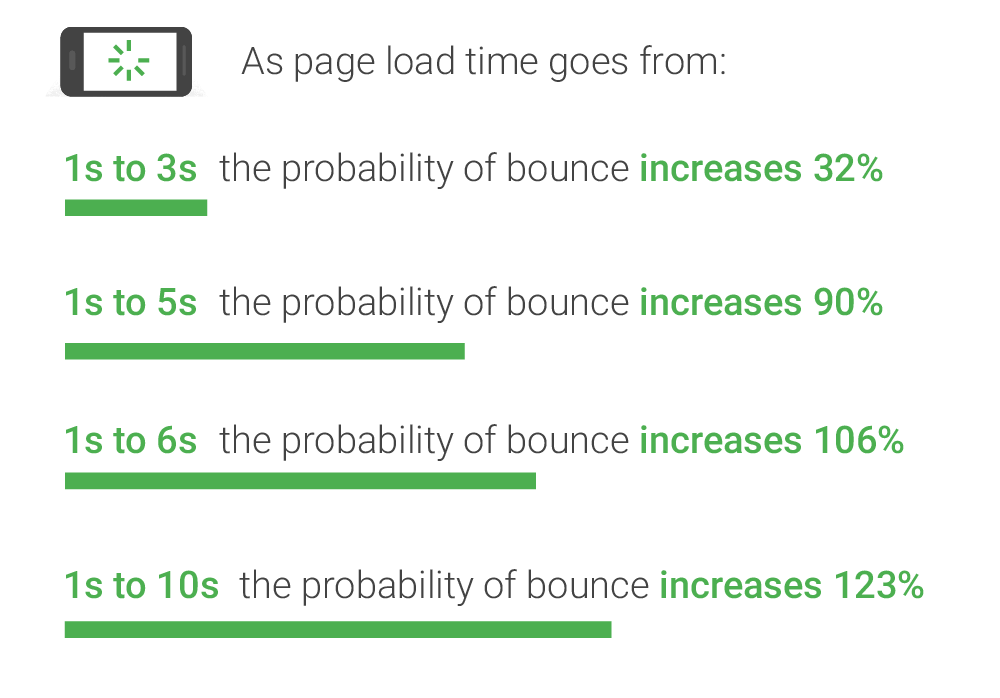
Even a 100-millisecond delay in load time can decrease conversion rate by 7%. Every second counts when it comes to site load time.
The good news is that optimization fixes site speed issues to a great extent. Having a fully optimized website means it will load fast and you might not have to take the pain of running speed tests every morning.
Google PageSpeed Insights provides you with a full overview of your site load time on both desktop and mobile. It shows you what you need to do to improve site load speed by highlighting issues and their solution.
While this is specifically a site speed tool by Google but the data it shows you is extremely useful in improving website optimization. It shows you the opportunities:
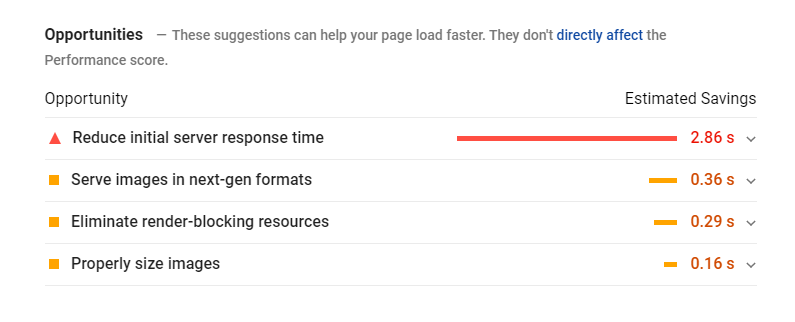
These opportunities might not improve site load time, but you’ll have a well-optimized website if you follow these recommendations.
Ensuring that your website loads quickly is part of the website optimization process and when you engage in the optimization process, you’ll have a website that will load quickly without any errors.
5. Revenue
It all comes down to revenue. Optimizing your website is linked to sales and revenue and importantly, all the other outcomes of optimization eventually lead to revenue. UX, organic traffic, conversion rate, and site load time – all increase website revenue.
A website ranking at the number one position in Google SERPs has over 37% CTR meaning that it receives 37% of all the traffic for the keyword it is ranking for:
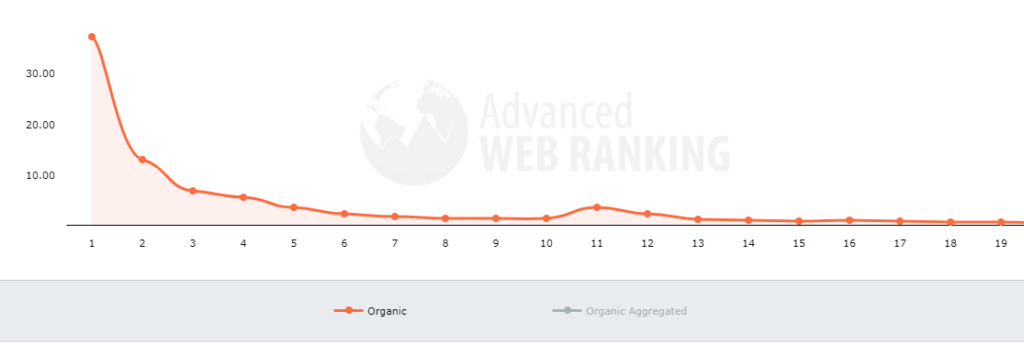
Optimization helps you achieve this sweet number #1 spot.
And optimization further helps you convert these visitors. Having hundreds of organic visitors on your site means nothing if they don’t convert. An optimized website will convert these visitors into customers helping you generate sales and revenue.
If you need more sales and want to increase your website’s revenue, start optimizing your website.
Conclusion
Traffic generation is one of the biggest marketing challenges that marketers face all over the world. Having a website isn’t just enough, you need to market it to drive traffic and generate leads. However, generating traffic isn’t a straightforward task, especially organic traffic.
This is where optimization comes to the rescue.
You receive organic traffic that will convert due to an optimized website resulting in an increase in sales and revenue. What else do you need?
Get started today. This is the only way to move forward if you want to compete in today’s time.
